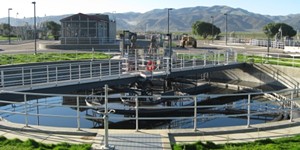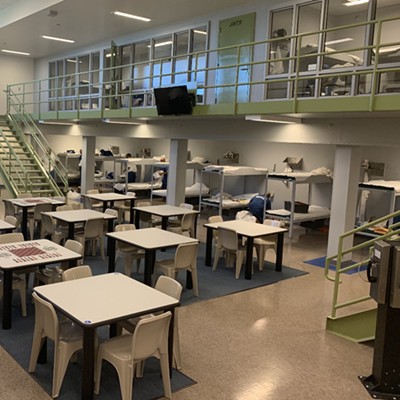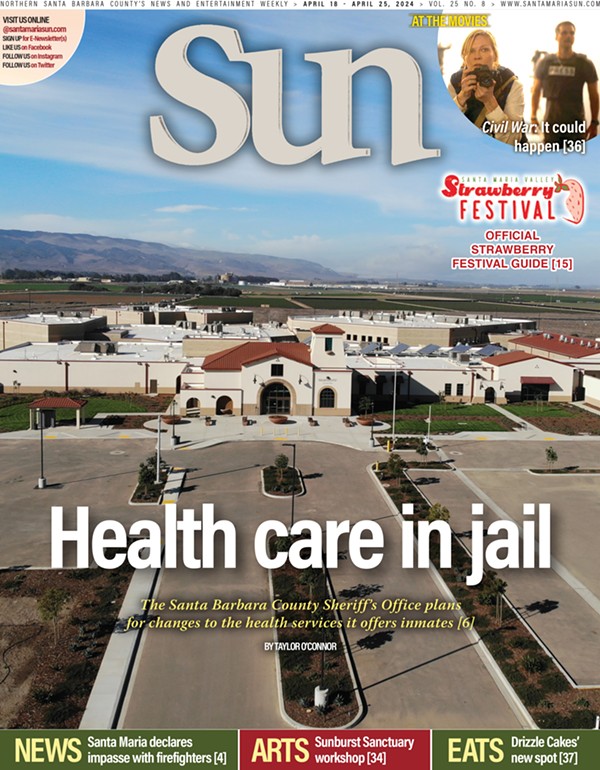Three times in as many months, the Lompoc City Council voted against city staff’s recommendations and upheld appeals from local business owners protesting the need to install grease traps in their restaurants.

During the appeal hearings, the majority of City Council members raised concerns about staff’s recent approach to implementing the city’s grease trap ordinance. Starting last year, staff began requiring all restaurants within the city to install the equipment, rather than only certain businesses. City staff said this widespread approach is necessary to comply with an agreement the city has with the state.
At the City Council’s Aug. 20 meeting, while discussing the latest appeal filed by the owner of the local Subway franchise, Councilmember Dirk Starbuck expressed his exasperation over city staff’s stance on the issue.
“Personally, I think it’s a crock,” he said. “I’m sorry we have to waste everybody’s time. I wish the staff would make a decision on common sense and not this freakin’ mass-mailing-generated document.”
The mass-mailing that Starbuck referred to occurred last year when city staff stepped up its enforcement of the city’s grease-trap ordinance. In October 2018, staff sent out surveys to all businesses that serve food within the city, asking whether the establishments have grease traps installed.
According to a Feb. 5 staff report, out of the 134 businesses surveyed, only 28 identified not having a grease trap. City staff followed up with those businesses and sent violation notices to 18 that were not complying with the city’s request to install a trap. Fourteen of those 18 businesses were in the process of installing one in February, according to the report.
P.J.’s Deli was one of the businesses to receive a violation notice. The owners of the long-standing sandwich shop filed an appeal with the city contesting the violation in February. At the June 4 City Council meeting where the appeal was discussed, Charles Sommer—whose mother owns P.J.’s Deli—said they have never had any issues with their sewer or water lines backing up in the three decades they’ve been in business.
“It’s absurd to think that after 37 years of no line stoppage and almost zero change in our menu, that the city wants us to have a grease trap,” Sommer said.
With a 4-1 majority, City Council upheld the deli’s appeal. In addition to upholding appeals from P.J.’s Deli and Subway, the council upheld an appeal from the Vitamin and Herb Store in July.
The city operates its water treatment plant under a National Pollutant Discharge Elimination System permit administered by the Environmental Protection Agency (EPA) and through a state-approved sewer system management plan. Water is discharged from the plant into a tributary of the Santa Ynez River.
Part of the federal permit requires the city to implement a pretreatment program, which is outlined in the city’s sewer management plan. The purpose of this program is to prevent pollutants from reaching the city’s treatment plant that could interfere with its operation, according to the EPA.
The city’s grease trap ordinance is part of this pretreatment program. According to the Feb. 5 staff report, these traps are used to prevent fats, oils, and grease from accumulating in the city’s sewer lines. In the past, large accumulations of these substances, called “fat bergs” have traveled to the city’s treatment plant, which require multiple employees to chop them into chunks to be thrown away. If they aren’t dealt with, these bergs could damage equipment at the treatment plant or cause a sewer overflow, which would have to be reported to the state and can result in fines.
City Utility Director Brad Wilkie said city staff stepped up its enforcement of the city’s grease-trap ordinance last year after a series of EPA audits in 2016 and 2017 found that the city wasn’t effectively implementing its pre-treatment program. Wilkie, who transitioned from being the city’s finance director to his new position in January 2019, said he isn’t sure why the city was falling short on its pre-treatment at the time.
According to his reading of the city’s sewer system management plan, all food service establishments within the city must have a grease trap, Wilkie said. However, there’s a discrepancy between what’s outlined in the plan and what’s in the city’s municipal code, which states that restaurants are required to install a grease trap at the utility director’s discretion.
During previous appeal hearings, the majority of City Council members expressed concerns over Wilkie not exercising this discretion. Councilmember Jim Mosby said that he thinks Wilkie is forcing some businesses that don’t need grease traps to install them, such as sandwich shops that don’t cook any ingredients in their kitchens.
“Why would you want to mandate something that is not needed?” Mosby said “That doesn’t make sense. It’s an increased burden on small businesses that need not apply.”
Wilkie said he believes the discrepancy between what’s outlined in the sewer management plan and the city’s municipal code is what’s causing the disconnect between city staff and City Council over the grease traps. The city is currently reviewing its sewer management plan and could make changes to the part of the plan about grease traps so it more closely aligns with the city’s ordinance, as long as the state approves the changes. Or, the city could make changes to its ordinance to provide further clarification.
“Those are in conflict, and until those are no longer in conflict, that’s to me the issue. ... We have to get those two in sync,” Wilkie said.
Mayor Jenelle Osborne has been the lone dissenting vote in the three appeals that City Council has heard so far. She voted against upholding the appeals because they don’t address the ordinance itself, which she said is the core issue.
“For me, when you create a scenario that results in numerous appeals, there’s a problem with the process and ordinance as a whole,” Osborne said. “Instead of going through all of these appeals and make exceptions ... we need to correct that.”
Staff Writer Zac Ezzone can be reached at [email protected].








